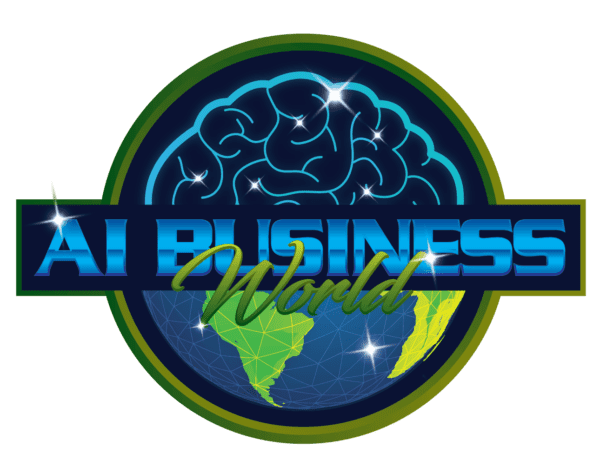What is AI (Artificial Intelligence) Business Guide

What is AI and how can it help?
Artificial Intelligence, or AI, refers to the development of computer software and systems to perform tasks that require human intelligence. This encompasses a wide range of capabilities, from learning and problem-solving to understanding natural language and making decisions. AI systems aim to simulate human-like cognitive functions, adapting to data and experiences to execute tasks autonomously. In essence, AI is the pursuit of creating machines that can exhibit intelligent behavior and respond intelligently to their environment.
In the ever-evolving landscape of technology, one term has become increasingly ubiquitous: Artificial Intelligence (AI). For business professionals, understanding the transformative power of AI is not just an option—it’s a strategic imperative. In this comprehensive guide, we will unravel the intricacies of AI, exploring its foundations, core components, and diverse applications in the business realm.
The Foundation of AI
Understanding AI
Artificial Intelligence, simply put, is the ability of machines to simulate human intelligence. It’s the driving force behind systems that can perform tasks requiring human-like cognitive functions. In the business context, AI is not a futuristic concept but a present reality, enhancing operational efficiency and decision-making.
Evolution of AI
The journey of AI has been marked by remarkable milestones. From the theoretical foundations laid in the mid-20th century to the recent surge in breakthroughs, AI has evolved from concept to practical implementation. As a business professional, recognizing this evolution is crucial for staying ahead in a competitive landscape.
Core Components of AI
What is Machine Learning?
At the heart of AI lies machine learning—a paradigm where systems learn and improve from experience without explicit programming. This capability empowers businesses to leverage vast datasets for predictive analytics, enabling more informed decision-making. Personally, I’ve witnessed the transformative impact of machine learning algorithms in optimizing supply chain operations, resulting in significant cost savings.
What is Natural Language Processing (NLP)?
NLP is the bridge between machines and human language. As a business professional, envision chatbots understanding customer queries or systems analyzing sentiments in customer reviews to improve services. NLP is not just a technological advancement; it’s a communication revolution, enhancing customer interactions and streamlining internal processes.
What is Computer Vision?
The ability of machines to interpret visual information—computer vision—is a game-changer for industries reliant on image data. From quality control in manufacturing to facial recognition in security systems, the applications are vast. Computer vision increases the efficiency for many tasks such as product inspection, reducing errors and improving overall quality.
Business Applications of AI
Operational Efficiency
AI’s impact on operational efficiency is undeniable. By automating routine tasks and optimizing processes, businesses can achieve unprecedented levels of productivity. In my own experience, integrating AI into workflow management systems resulted in a significant reduction in manual errors and a streamlined approach to complex tasks.
Decision Support Systems
The era of data-driven decision-making is here, and AI plays a pivotal role. Predictive analytics powered by machine learning algorithms empowers professionals to make informed decisions based on historical data and future projections. I’ve found that embracing AI in decision support systems has not only increased the accuracy of forecasts but has also positioned our team as proactive strategists.
Customer Experience Enhancement
For businesses focused on customer satisfaction, AI offers tools to personalize interactions and exceed customer expectations. Chatbots, recommendation systems, and personalized marketing campaigns are just the tip of the iceberg. Integrating AI into customer service not only reduces response times but also leads to a more personalized and satisfying customer experience.
Overcoming Challenges and Ensuring Ethical AI
Addressing Bias
While AI presents incredible opportunities, it’s not without challenges. Addressing bias in AI algorithms is paramount to ensuring fair and ethical outcomes. It is important to actively review and refine algorithms to mitigate biases, ensuring AI systems contribute positively to the business objectives and societal values.
Data Security and Privacy
The rise of AI brings forth concerns about data security and privacy. As a business professional, safeguarding sensitive information is a top priority. Implementing robust cybersecurity measures and adopting ethical data practices are integral to maintaining trust with clients and stakeholders.
Why is AI Important?
In conclusion, Artificial Intelligence is not just a buzzword; it’s a powerful tool that can reshape the future of businesses. As a business professional, embracing AI is not about adopting a trend; it’s about strategic adaptation for sustained success. From operational efficiency to customer experience enhancement, AI offers a spectrum of possibilities. However, ethical considerations and overcoming challenges are pivotal to ensuring a positive impact on both business and society.
To stay ahead in this dynamic landscape, continuously educate yourself on AI trends. Explore industry-specific applications of AI that align with your business goals. The journey into the realm of AI is not just about adopting technology—it’s about leading with innovation and securing a competitive advantage in the digital age.

